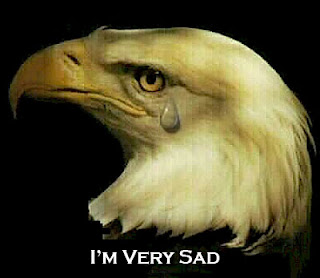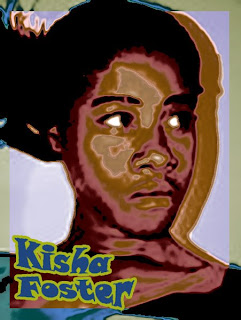 Much has been written
Much has been writtenon this blog about haiku, what the definition of haiku is, the importance of haiku, the different interpretations of the form, etc. So much, in fact, that other short forms have been ignored, from the Japanese
tanka to the Korean
sijo to the oft ignored American
cinquain. Adelaide Crapsey, inspired like many Imagists by Japanese poetry, came up with an American form that followed a specific syllable count. Her form, the American
cinquain, a 22-syllable form, falls syllabically between a haiku (17) and a tanka (31). A few of Crapsey's cinquains, which were written between 1911 and 1913, are even considered tanka, albiet the more westernized version of the form sans syllabic count.
Ultimately, a cinquain is a five line poem which follows a syllabic count of 2/4/6/8/2. Crapsey herself deviated from the form at times, but for the most part, western poets follow this syllabic count quite strictly. In addition, many cinquains, despite being based on Japanese untitled forms, are titled like other western poems.
Since 2002, Deborah P. Kolodji has been editing
Amaze: The Cinquain Journal, an on-line poetry jouranl. For two years, she has been collecting the poems and essays from each year into a large printed publication to help promote the form and the magazine.
This years publication is a great display of the potential of the form. Many poets have been gathered together, all exploring what can be done with such a deceptively simple form.
A few echo the sensibilities of tanka, with two sections juxtaposed and resonating against each other:
Desert Orbsfull moon
rising above
the silhouetted hills:
a pie pan flung by the roadside,
shining
--Billie DeeCampus Coffee Shop
He raves
on Kant's ideals--
intrepid robins peck
the crumbs of conversation strewn
their way.
--Anya CorkeLong agoWarriors
clash in the sun,
their silver blades flashing--
on the ground, the fallen cherry
blossoms.
--Terra MartinOthers are lighter, even humorous, scenes and funny observations:
When The Sun Goes DownTrolling
the local bars
she flirts with every man--
it's just another tequila
sunrise.
--John DaleidenAt the ReadyWhistling
a tune, his face
contorts with cheer: the notes
from puckered lips prepared to blow ...
a kiss.
--Mary E. MooreAstronomy PuppyI watch
the moon; he barks.
I note craters; he digs.
I pack my telescope; he sits
tangled
--Lee A. SpainSome are poignant metaphors:
ApprenticedOur earth,
frail boat, drifts on
a vast ocean of sky
while we hold tight and try to learn
to row.
--Ross PlovnickFarewell at Duskdroplets
flow in circles
that blossom on my skin;
I am the moon, trapped in your
orbit
--Trish ShieldsAlso included are various longer forms based on the cinquain, mirror pieces as well as cinquain crowns and series:
Goddess of BeautyTonight
I saw her pluck
a copper coin from clouds
of pink above a purple sea,
drop it
gently
in a slot between two islands.
Trails of silver handprints
were waving dusk
goodbye.
--Susan ConstableFlying the Jolly RogerSwaying,
wooden boards creak,
steel drawn, cannons blazing --
boarding pikes and grappling irons
ready.
Matchlocks
fire, lead balls tear,
sailors a'twitch, dying --
sabres reap a fleshy harvest
of blood.
Awash
with sticky red,
gore-soaked decks slick with death --
ripping evil overwhelming,
swarming.
Crewmen
become corpses,
passengers become slaves --
life measured in gold and silver
plunder.
Treasure
secured and stowed,
merchant ship smokes and burns --
in the breeze, the skull and crossbones
flutter.
--Paul IngrassiaPoet Without Borders(a crown cinquain)
After
the final shot
silence lies within words -
you reach through it, a bloody mute
stillness.
The words,
half-dead, fractured
lie - blackened or bloated
or buried alive in snow's deep
whiteness.
On the
empty pages
of the lost words, you search
finding other tongues, lover tongues -
meanings.
Poet
without borders
you resurrect dead words,
breathe life into barely living
language.
In the
quest for language
we yearn for words of peace,
of love, and dancing, we hold hands,
singing.
--Hortensia AndersonAlso included are essays concerning the cinquain form, including the well researched "The Roots of the American Cinquain" by Judith Ecker Budreau.
This is an excellent collection which shows the potential for this oft ignored and misunderstood form. For any poet interested in short, non-narrative verse (especially those who enjoy counting syllables), this collection makes an important read.
 Gettouda Pointillism: Though thought by many to merely be a reaction to the fervor surrounding the breath-taking rise (and subsequent fall) of the Deterministica, this view fails to address the intriguing and dramatic back-story of the form. Largely in response to Willary Prederick’s stubborn squandrance of the family fortune defending Whaley-Horseman’s poetic endeavors, Gettouda Prederick (great-granddaughter of Willary), writing from exile in France, constructed a devastating new form which completely removed all determiners from its aesthetic, eventually laying a genocidal eye upon prepositions and helping verbs:
Gettouda Pointillism: Though thought by many to merely be a reaction to the fervor surrounding the breath-taking rise (and subsequent fall) of the Deterministica, this view fails to address the intriguing and dramatic back-story of the form. Largely in response to Willary Prederick’s stubborn squandrance of the family fortune defending Whaley-Horseman’s poetic endeavors, Gettouda Prederick (great-granddaughter of Willary), writing from exile in France, constructed a devastating new form which completely removed all determiners from its aesthetic, eventually laying a genocidal eye upon prepositions and helping verbs:























